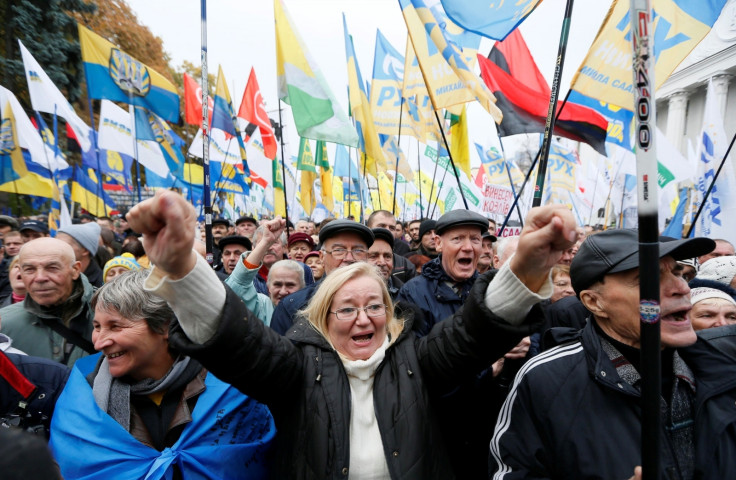'Diplomacy alone won't stop Russia's desire to dominate Ukraine' says think tank report
Chatham House says the EU must back Ukraine which is "fighting for survival".
The EU has been "too timid" in its help for Ukraine which is a country "fighting for its survival" from the twin threats of Russia and its corruption domestically, a new report has said.
Four years on from the Euromaidan revolution that toppled previous president Viktor Yanukovich, the Chatham House think tank said Moscow still considers Ukraine "an extension of the homeland" whose cause is being used by western efforts "to enfeeble Russia and overthrow its regime".
Its report, titled 'The Struggle for Ukraine' described how Russia's "tenacity and adaptability should not be underestimated" and that the appearance of a stalemate in parts of Ukraine's eastern region of Donbas "should not divert attention from other means that Russia is employing to sabotage and 'reset' the Ukrainian state.
"It is an illusion to believe that diplomatic formulas alone will diminish Russia's determination to dominate Ukraine and rid it of meaningful Western influence," the analysis by the London think tank said.
It has called on the west to use the channels of the Normandy Format and the Minsk process to resolve the war and also be prepared to toughen sanctions on Russia, in light of its occupation of Crimea and its role in destabilising the east of the country.
The internal threat
Western countries also need to provide Ukraine with more military help and training, NATO assistance as well as money to help modernise Kiev-controlled parts Donbas.
The report also pointed out that while Ukraine had made big reforms, the other big hurdle for the country was its "unscrupulous system of power" with the administration of current president Petro Poroshenko's administration "less committed to reducing corruption than it should be".
The EU has an unprecedented political mandate for driving reforms but "it has been too timid to use this mandate, and thus risks losing the trust of reformers".

Report co-author James Nixey said that Ukraine had undertaken deeper and more extensive reform in the past four years than in the previous 22 of its post-Soviet life.
"But much of what it has achieved can be reversed. Without further western support Ukrainian reforms will stall and public discontent would destabilise the country," he said.
On Monday (16 October), there were clashes between riot police and demonstrators in the Ukrainian capital demanding major reforms. The protesters want an anti-corruption court to be set up, changes to the electoral system and for MPs to lose immunity from prosecution.
The ex-Georgian president Mikheil Saakashvili, who was a former regional governor in Ukraine, but now rendered stateless, told the protesters: "It is time for them to hear us".
The think tank's report pointed to tackling corruption as key to the country's future because "arguably the greatest danger to Ukraine comes from within.
"Ukraine's establishment, its informal networks, its Soviet legacy and, most of all, vested interests in the form of businessmen with excessive influence on the levers of power pose the greatest threat to stability and success, " said the report.






















